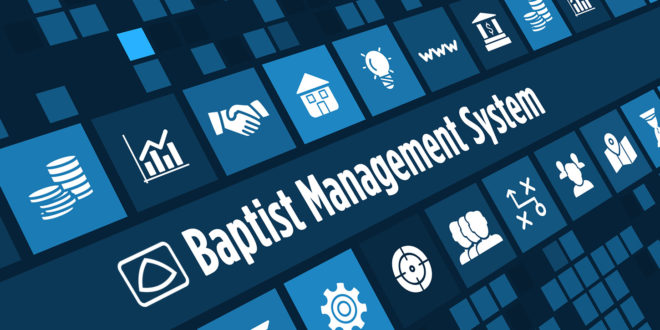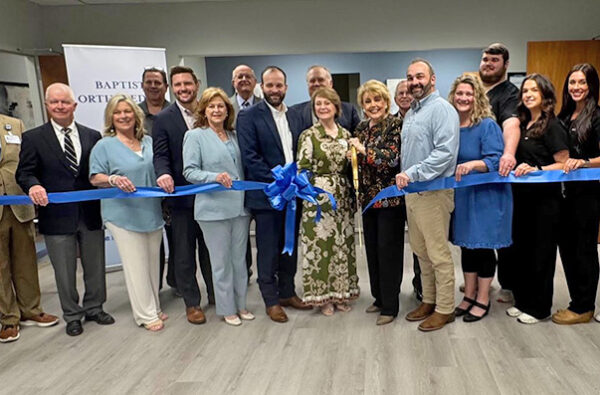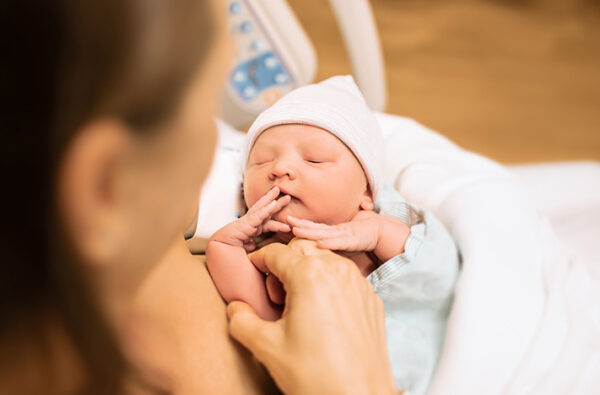From increasing clinical trial access to improving lung cancer surgeries, Baptist Cancer Center’s KATA work within Baptist Management Systems (BMS) drives ongoing success.
NCORP (NCI Community Oncology Research Program) Grant
NCORP brings researchers together with community-based physicians to conduct high-quality clinical trials for cancer patients in local settings, where most patients receive their care. With this five-year grant, success is measured by credits awarded for patient-related clinical trial activity. “In 2014, Baptist Cancer Center got 18 credits,” said NCORP Administrator Emma Draluck. “Second year, we obtained 40, and this year, we are at 70, with two and a half months to go. Our challenge is to obtain 100 credits in one year.”
Working a KATA board helped the team improve screening efficiency. The result is a new EPIC tool that centralizes patient information, making it easier for nurses to identify those potentially eligible for a trial at clinics throughout the health care system. “This project began five months ago, and we now are screening roughly 500 patients a month before they enter the doctor’s office,” Emma said.
Just opening a clinical trial can take up to nine months. The team is now tracking start and end dates of each trial component to determine where improvement is needed. The goal: to open a trial within a month. Early success: over 28 months, the team had opened 17 trials. In the last six months, eight have been opened, for a total of 25. “Obviously having trials open is very important; ideally you want to have a trial open for every patient that walks into your office,” said Emma.
“Trials such as these have traditionally only been accessible to patients at high-performing academic hospitals,” said Emma. “But through NCORP, more of the local underserved population can participate. Being tucked in between Mississippi, Arkansas and Kentucky puts us in a good position to help those who normally don’t have access to these trials.”
PCORI (Patient-Centered Outcomes Research Institute)
This three-year grant relies heavily on surveys, with an enrollment goal of 450 patients—300 from serial care, 150 from multidisciplinary care. With a tight timeline, grant staff used KATA to meet and surpass this goal, ultimately enrolling 527 patients in the study. Their KATA board is now focused on improving the process of patient identification, enrollment and follow-up.
Examination of mediastinal lymph nodes
Through this five-year National Institutes of Health (NIH) grant, the thoracic oncology group within the Baptist Cancer Center is recruiting those Mid-South hospitals that conduct at least five lung cancer surgeries annually to use the mediastinal lymph node surgical specimen collection kit, invented by Baptist Cancer Center oncologist Dr. Raymond Osarogiagbon.
“Our goal is to have this device used in 80 percent of these surgeries,” said Nick Faris, system project manager for thoracic oncology research. “Currently, the number is 73 percent.” The team is focusing on identifying institutional challenges preventing use of the kit. Another KATA team is examining data quality. “It’s about improving our audit process,” says Nick. “We want to move past our historical 10 percent audit rate to a rate of 25 to 50 percent without adding more time to the audit process.” Data obtained is used to publish manuscripts. Last year, the team published one manuscript per month. Their challenge now: submit one manuscript per week. “This is a big goal, but we want to see if we can do more.”
Nick says focusing on quality improvement has benefited the entire Baptist Cancer Center program. “We will keep reaching out to rural areas such as New Albany and Golden Triangle so more people will have access to our trials. We also want to educate more physicians on the existence of these grants so we increase referrals.”






